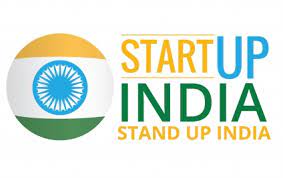SINGAPORE: India has seen a spectacular expansion of its startup scene in the last few years. Over 52,000 entities are officially recognised as startups by the Department for Promotion of Industry and Internal Trade (DPIIT) as of July 2021.
It has been five years since the launch of the Start-Up India initiative by Prime Minister Narendra Modi. With governmental support, technological advancements in terms of better online connectivity aided by mobile penetration and a cultural change resulting in a more positive perception of startups, there has never been a better time to be innovative and start a business. Indeed, whereas in the past, most preferred to stick to safe corporate jobs, today it is seen as cool and even glamourous to be an entrepreneur or to be working for a startup.
This has in some way been helped by the recent success of Indian startups like Flipkart, Paytm, Zomato and OYO among others. Additionally, the startup ecosystem has matured tremendously with the more ready availability of mentoring and funding opportunities. Also, many external angel investors, venture capital funds and companies are keen to invest in Indian startups due to its large market potential.
DealStreetAsia estimates that 30 firms in India reached USD1 billion in valuation this year, making the total number of such “unicorn” firms touch 50.
India’s neighbours in Southeast Asia are also experiencing the same burgeoning growth of its startup sector.
According to DealStreetAsia, this year through October 12, as many as 15 venture capital-backed startups in the region had freshly succeeded in fundraising at a valuation of USD1 billion or more. Considering that just 19 startups achieved unicorn status in the region during the seven years from 2013 to 2020, this is a phenomenal increase. The number of venture capital (VC) backed unicorns in Southeast Asia now stands at 27.
Among the 15 newly minted startups in Southeast Asia this year, Singapore has by far the most at 10. Indonesia has three, and Malaysia and Thailand one each.
Based on the British financial research website Money.co.uk, the city-state is tied for fourth place in the world along with the US and Australia for how fast its startups turn into unicorns. On average, Singapore-based startups took six years and 11 months to achieve the much-vaunted USD1 billion valuation.
The most recent firms which attained unicorn status are the online marketplace Carousell and last-mile logistics provider Ninja Van.
Carousell started as a consumer-to-consumer website for listing and selling used items. It has now expanded to a marketplace which includes business-to-consumer transactions as well as the sale of new goods, operating in 10 countries – Malaysia, Indonesia, the Philippines, Cambodia, Taiwan, Hong Kong, Macau, Australia, New Zealand and Canada. In September, it raised USD100 million in fresh funds valuing the company at USD1.1 billion.
Also in September, Ninja Van raised USD 578 million in late-stage series E funding adding Alibaba Group as an investor. Besides Alibaba, existing investors include B Capital Group – the venture capital fund set up by Facebook co-founder Eduardo Saverin.
Launched in 2014, it now employs 2,000 people and works with 10,000 drives operating in the six major Southeast Asian countries of Singapore, Malaysia, Philippines, Indonesia, Thailand and Vietnam.
Based on information from DealStreetAsia, funds were raised at a record rate by Southeast Asian startups.
From January to September of 2021, investments totalled USD 17.2 billion, which is more than twice the USD8.5 billion raised for the whole of 2020.
Meanwhile, startups in India also snared a record of approximately USD 24 billion of VC investments for the same nine months period, also doubling last year’s USD 12.4 billion. This is based on Pitchbook Data.
The increase in the number of unicorns in India and Southeast Asia not only means that investors are paying more for new shares in these companies, it also indicates that valuations in startups has risen in general.
A major factor driving these elevated valuations is that digitalisation and technology have enabled many companies to look beyond their domestic markets and to have wider geographical ambitions. Joonpyo Lee, chief executive of Softbank Ventures Asia, was quoted by Nikkei Asia as saying that,”It is already nothing unusual today for a Southeast Asian startup to go pan-Asia or global.”
Yet another reason for the investment growth is the rapid expansion of the middle class in India and Southeast Asia and along with it the increased propensity to consume goods and services.
According to OECD Working Papers, No. 285, “The Emerging Middle Class in Developing Countries”, India’s middle class is projected to rise from 63 million in 2010 to 1,168 million in 2030. The number of Southeast Asians in the middle class is estimated to reach334 a million in 2030, up from 91 million in 2010. In this study, the middle class is defined as households with daily expenditures between USD10 and USD100 per person in purchasing power parity terms.
With China’s crackdown on big tech causing investors to review their China investments and also India-China tensions leading to China tech companies and VCs looking elsewhere, the availability of capital for Southeast Asian startups is not likely to abate in the near future.
Speaking to Nikkei Asia, Akshay Bhushan, a Bangalore-based partner at Lightspeed Ventures Partners, said, “In addition to those international political factors, Southeast Asia itself is coming to its prime time.” Pointing to “knock-on-effects” of unicorns’ success stories to newer companies, he added, “Younger talents today have seen those successes by Sea and Grab and start up new companies. Regional and global investors have seen those success stories and fund those new companies.” (ANI)







